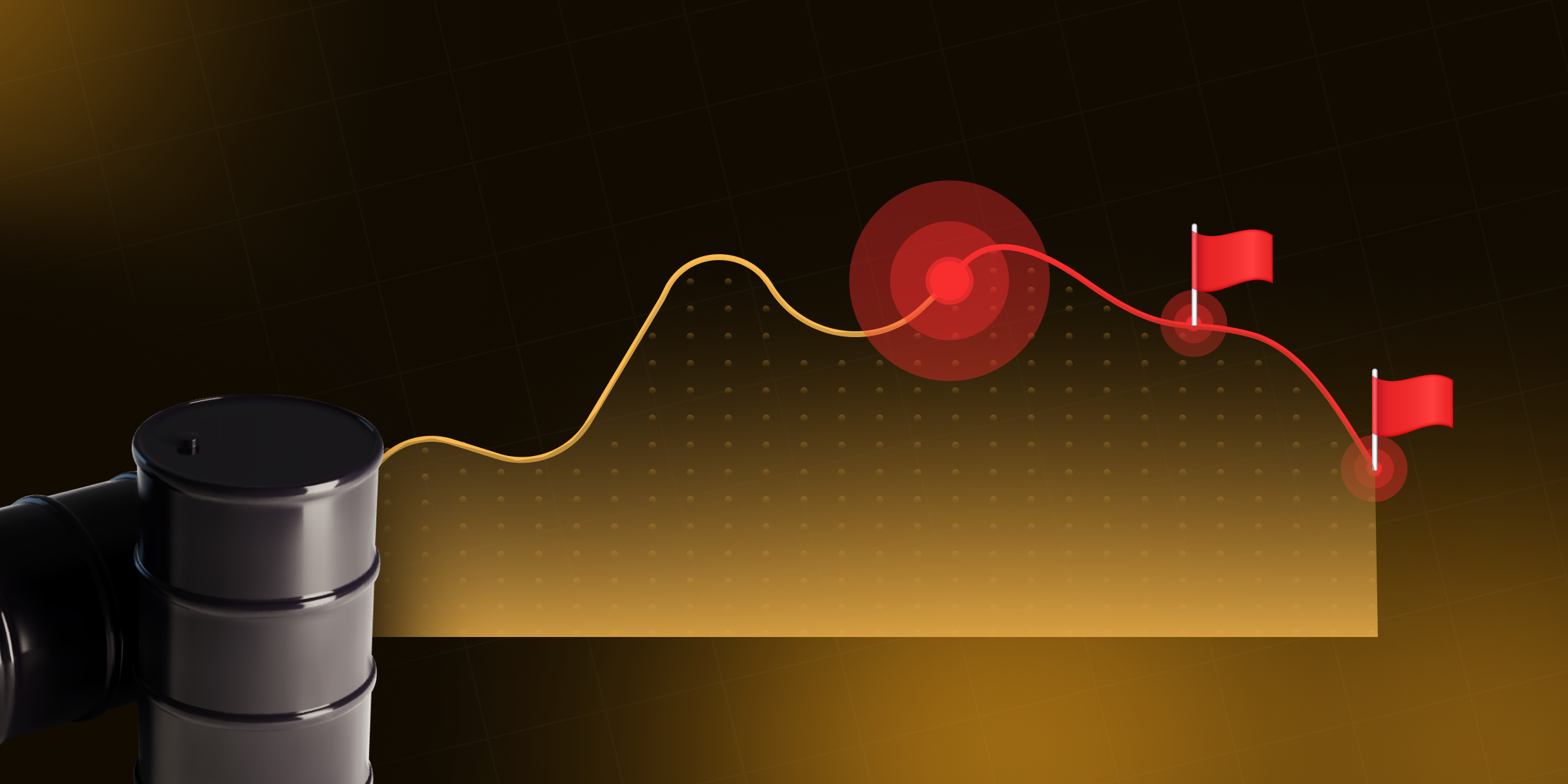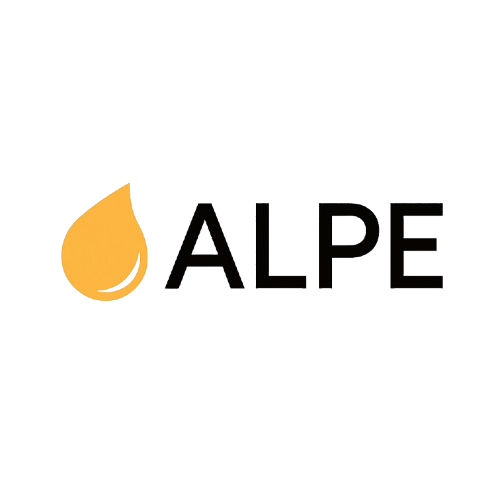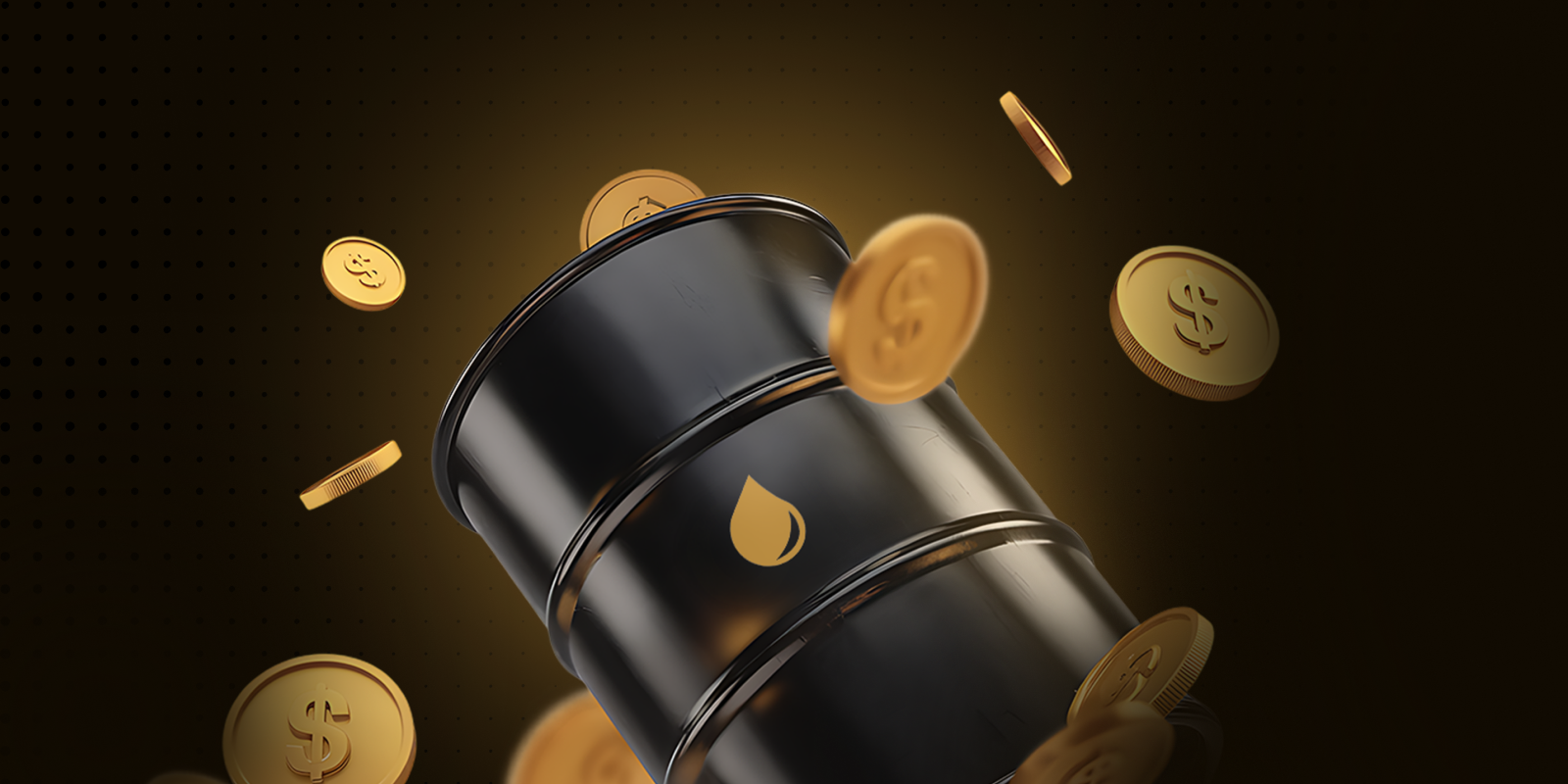Top 7 Red Flags That Signal a Fraudulent Oil Supplier

Top 7 Red Flags That Signal a Fraudulent Oil Supplier
By Team Alpe | Alpe.org – Your Global Hub for Oil & Energy Transactions
Why Trust Is Everything in Global Oil Transactions
When I first got into oil trading, someone told me, “The product is only half the deal — the people are the other half.” Back then, I didn’t fully understand it. Now? I’ve seen deals fall apart over a single fake document. Millions lost. Reputations ruined.
In the world of global oil transactions, where crude barrels move across borders and payments flow through layers of banks, trust isn’t just a nice-to-have — it’s everything.
But here's the hard truth: fraudulent oil suppliers exist, and they’re getting smarter. Whether you're sourcing 100,000 barrels of Bonny Light Crude or managing a first-time diesel deal in Fujairah, knowing the warning signs can save your entire operation.
At Alpe, we’ve helped hundreds of buyers steer clear of shady deals. And today, we're going to walk you through the top 7 red flags that should make you stop, double-check — or walk away.
Let’s protect your capital before the next wire goes out.
What Makes Oil Trading So Vulnerable to Fraud?
Before we dive into red flags, let’s zoom out for a second.
Why is the global oil trading ecosystem so attractive to scammers?
-
• High-value, fast-paced deals
Oil & Gas contracts often move in the millions. A single mistake is costly. • Cross-border complexity
Documents, banks, logistics, customs… spread across 5+ countries per deal.• Information asymmetry
One side often knows more than the other — especially with newer buyers.• Lack of centralized records
There’s no global oil supplier database. And anyone can look legit online.
All these factors make global oil transactions a magnet for fraudsters. But the good news? Once you know what to watch for, spotting scams becomes second nature.
Why Is It So Hard to Spot a Fraudulent Oil Supplier?
Most buyers don’t lose money because they were careless. They lose it because fraud is convincing.
• Slick emails. Real-sounding names. Stamped PDFs.
It all feels official — until the product never arrives.• They mimic real procedures.
“NCNDA, IMFPA, POP…” You hear the right terms and assume the rest is real.• They prey on urgency.
“Price is going up tomorrow. You must act now.” This creates panic decisions.• Language and time zone barriers.
You’re dealing across borders. Slow responses get overlooked — even if they’re signs of something fishy.
So how do you know who’s real?
Start with these 7 red flags…
Top 7 Red Flags That Signal a Fraudulent Oil Supplier
1. They Refuse to Use Trusted Platforms Like Alpe
Let’s be honest — why would a legitimate oil supplier avoid a secure platform like Alpe.org?
If someone says, “Let’s keep this off-platform. We don’t want a middleman,” what they’re really saying is: “We don’t want oversight.”
Global oil transactions are too risky to manage through email threads alone. Platforms like Alpe protect both buyers and sellers by offering:
- • Document validation
- • Secure payment terms
- • Verified trade histories
And guess what? Fraudulent oil suppliers almost never agree to these terms. That’s your first red flag.
2. They Can’t Provide Clear Documentation — or It’s All “Coming Soon”
Here’s what a legit oil deal typically includes:
| Document | What It Confirms |
|---|---|
| Company Registration | Supplier exists legally |
| Product Origin Certificate | Crude source is real |
| Past Performance Records | They’ve traded before |
| Logistics Chain Info | The route is executable |
If they dodge these? Or give you outdated, generic samples? You’re likely dealing with someone faking it till you pay.
At Alpe, we help buyers verify every document before the deal moves forward. That way, you’re not relying on trust alone.
3. The Price Is “Too Good to Be True” — Because It Is
We’ve all seen this trick.
Someone quotes you $6–10 below the Brent average. No taxes. No logistics headaches.
You feel like you’ve struck gold… until you realize the supplier disappears after the first tranche is paid.
In global oil transactions, pricing follows structure — not miracles. Real suppliers don’t throw out huge discounts without verified conditions like:
- Off-spec product
- Advance payment in escrow
- Existing trade relationship
Use tools. Check benchmarks. Question anything that seems “just for you.”
4. The Too-Good-to-Be-True Discount — Why That Cheap Oil Might Cost You Millions
Let’s be honest — we’ve all been tempted by a “sweet deal.” But in Global Oil Transactions, too much sweetness usually signals rot beneath the surface.
A fraudulent oil supplier will often pitch prices way below market average. Why? Because they know desperation attracts risk. I once saw a trader lose over $2 million chasing a “70% FOB discount” out of Nigeria. The paperwork looked legitimate — until the loading never happened.
Real suppliers don’t cut corners to cut costs. The oil business runs on tight margins and real-world logistics. If something looks unreal, it usually is.
👉 Always compare offers to trusted market benchmarks like Platts or Argus, and don’t rely solely on what the seller “says the market is.”
| “I should’ve listened to my gut — not the invoice.”
| — Middle East trader who lost a major client due to a fake supplier deal
5. No Verifiable Track Record — Why You Must Investigate Their Trading History
If a seller can’t show you real transactions, they’re not worth your trust.
In Global Oil Transactions, experience is more than a badge — it’s your armor. A fraudulent oil supplier will avoid giving references, past deals, or independent verification. They'll often say, "Our deals are private," or "We can’t share past client names." That’s code for: “We’ve never shipped a real barrel.”
At Alpe, we dig deep into each supplier’s trading footprint. We verify port clearances, third-party confirmations, and consistency in loading data. Why? Because you deserve more than a name on paper — you deserve proof of delivery, history of trust.
| “When we vet a seller, we don’t just ask, we verify — across borders and brokers.”
| — Vetting Officer, Alpe Global Oil & Energy Transactions Team
6. Confusing or Incomplete Documentation — Why Real Sellers Are Never Vague
Have you ever seen a Proforma Invoice that looked like it was made in Word 2007?
Fraudulent suppliers often provide poorly structured documents, missing critical information — like port codes, loading numbers, vessel IMO numbers, and tax ID trails. Some will even forge SGS reports that don’t match the oil spec or batch code.
In a secure ecosystem of Global Oil Transactions, clarity is king. That’s why Alpe requires every seller to submit:
- • Verified corporate registration
- • Verified export permits
- • Authentic Bills of Lading
- • Tank farm and port logistics confirmations
- • SGS or Intertek authenticity with digital traceability
Anything less is unacceptable.
| Document | Required for Vetting | Reason |
|---|---|---|
| Corporate Registration | ✅ | Verifies legal standing |
| Bill of Lading | ✅ | Proof of actual shipment |
| Tax ID / VAT | ✅ | Confirms jurisdiction compliance |
| Port Approval | ✅ | Validates loading location |
| SGS Certificate | ✅ | Independent cargo analysis |
7. Pressure Tactics & No Room for Questions — The Classic Fraud Trap
Ever received a message like:
| "You need to confirm in 24 hours or we’ll offer this to someone else."
Fraudulent oil suppliers rush your decisions. They avoid deep questions, dodge compliance talk, and push you to commit before you're ready. Why? Because once you start asking questions, the cracks show.
A reliable supplier in Global Oil Transactions will never pressure you. They’ll welcome scrutiny. They’ll have answers. They’ll even delay a deal to ensure you're comfortable.
If someone can’t answer, “What port are we loading from?” or “Can I speak to your chartering partner?” — walk away.
How Does Alpe Vet Every Seller Before You Trade?
When we built Alpe — The Global Hub for Oil & Energy Transactions, we started with one question:
| “What would it take to make oil deals as safe as online banking?”
Here’s what we built:
1. Identity & Trade History Verification
We work with legal registries and corporate compliance firms across 18 countries. Every supplier must provide:
- • Tax ID and business license
- • Proof of trade activity over the last 18–24 months
- • Director-level KYC (Know Your Client) and AML (Anti-Money Laundering) checks
2. Logistic Trail Verification
We verify:
- • Actual port logistics and terminal access
- • Physical stock availability (via port partners)
- • Pre-inspection cargo reports
- • Bankable documentation for SBLC and escrow routing
3. Human Review + Alpe Scoring System
We don’t just rely on documents. Our vetting team scores each supplier on:
- • Communication clarity
- • Compliance response time
- • Market footprint and third-party credibility
- • Previous flags across blacklists and trade boards
If they score below our threshold, they never get listed.
How Real Traders Feel When You Avoid Scams
You know the feeling — that pit in your stomach when you're unsure.
But imagine this instead:
You’re on a Zoom call.
A vetted supplier walks you through the tank storage.
Your payment is routed through escrow.
The product loads. On time. At spec. Without excuses.
That’s what we built Alpe for. To make Global Oil Transactions safer, more transparent, and feel less like a gamble and more like a handshake between professionals.
| “For the first time in 12 years, I didn’t feel like I had to chase every single confirmation. Alpe did it before I even asked.”
| — Oil Trader, UAE
What’s the Psychology Behind Falling for a Fraudulent Oil Supplier?
You’re smart. You’ve done business before.
So why do experienced traders still get tricked in Global Oil Transactions?
Because fraud in oil isn’t always loud — it’s subtle.
Scammers don’t come in looking shady. They sound professional. They use trade lingo. They name-drop port authorities. They say the things you want to hear — like “competitive rates” and “fully verifiable product.”
But here’s what I’ve seen personally — fraudulent oil suppliers prey on urgency and trust.
They know when you're chasing a deadline, have pressure from a buyer, or want to secure your first big contract.
They time their scams to your pain points.
That’s why Alpe isn’t just about checking boxes — we’re about giving you space to breathe and verify.
What Makes a Fraudulent Oil Supplier So Hard to Detect?
In the digital age, fraud is layered. Many scammers:
- • Use real company names but falsify contacts
- • Mimic legitimate port agents and send cloned LOIs
- • Hire actors to pose as terminal staff on video calls
- • Create websites that look identical to actual firms
In short, they do their homework — and assume you won’t.
That’s where Alpe’s 4-Layer Vetting System comes in. It’s not just about identifying red flags — it’s about building a wall of trust before you ever commit money, manpower, or credibility.
What Does a Legitimate Oil Supplier Look Like?
Let’s break it down side by side:
| Criteria | Real Supplier Traits | Fraudulent Supplier Traits |
|---|---|---|
| Communication | Transparent, patient, responds to scrutiny | Pushy, vague, evasive under pressure |
| Documentation | Consistent, detailed, matches industry standards | Generic, missing key info, contradictory in details |
| Pricing | Close to market average with valid justification | Far below average, no breakdown or fake discounts |
| References | Shares past transactions, port details, and partners openly | Says “we can’t disclose due to privacy” |
| Port and Tank Access | Can confirm access, name terminals, show proof | Makes excuses, avoids specifics |
| Response to Due Diligence | Encourages it, even assists your legal team | Avoids legal teams, wants to bypass banks or intermediaries |
If even one of these tilts toward the right column — walk away.
How Can Buyers Avoid Red Flags in Global Oil Transactions?
Here are 5 real actions you can take:
1. Use a Transaction Platform Like Alpe
Platforms like Alpe Global Oil & Energy Transactions already screen the hard stuff for you — so you spend less time verifying and more time trading. Plus, we use escrow and smart contracts to guarantee safety.
2. Ask for Real Docs — and Verify Them
Don’t just look at a scanned Bill of Lading — verify it with port records, vessel tracking (MarineTraffic), and terminal databases.
3. Always Request Third-Party Contact
Fraudsters hate when you ask:
“Can I speak to your logistics partner or SGS rep?”
A real supplier will say yes. A fraud will say, “Let me get back to you.”
4. Never Trust a Deal That Needs to Close Today
Real oil is patient. Scams are rushed. Any deal that forces speed over clarity is likely a fraudulent oil supplier.
5. Look for Peer Reviews and Independent Ratings
That’s why Alpe assigns supplier credibility scores. It’s like a credit rating — but for traders.
What’s Alpe’s Role in Protecting Global Oil Transactions?
We’re not a broker. We’re not a bank.
We’re your safety net in a risky, global industry.
Alpe Global Oil & Energy Transactions was born from years of frustration — lost shipments, bad actors, shady paperwork. We’ve seen traders lose deals that cost not just money — but reputations, clients, and teams.
So we fixed it.
Here’s what Alpe gives you:
- • A verified pool of pre-vetted global sellers
- • A structured vetting report for each supplier
- • Real-time port and vessel checks
- • Smart contracts, escrow routing, and compliance services
- • A human support team who’s been in your shoes
You don’t just “find oil” on Alpe. You find safety.
Can You Really Trust Oil Trading in Today’s World?
Yes. But you can’t trust everyone.
The stakes in Global Oil Transactions are higher than ever.
Between geopolitical risks, price volatility, and rising fraud — you can’t afford to get this wrong.
But when you trade with Alpe?
You have a built-in shield of verification, compliance, and accountability.
| “This isn’t just about oil. This is about protecting futures, families, and reputations. That’s why Alpe matters.”
| — Founder, Alpe
🤝 What Happens When You Use Alpe to Trade?
Let’s walk it through:
- You create an account
- We assign you a trading specialist
- You browse verified suppliers or submit your buy-side RFQ
- We match you with the right partner
- You verify all docs and vessel info before any commitment
- You pay through escrow with conditional release
- The product loads and delivers — on time
No more chasing suppliers. No more praying the oil is real.
Just calm, professional, transparent trading.
Frequently Asked Questions (FAQ)
1. What’s the biggest red flag in oil trading?
Rushed deals and lack of documentation. If a supplier doesn’t want to be questioned, that’s your first clue.
2. Can I trade without using platforms like Alpe?
You can — but you expose yourself to massive risk. Platforms like Alpe eliminate 90% of fraud exposure.
3. What if I already have a supplier? Can I run them through Alpe?
Absolutely. Alpe can vet and score your existing supplier before you sign anything.
4. How does Alpe make money?
We earn from platform usage and verification fees — not from deal cuts. Our priority is your trust, not commissions.
5. How do I know the oil will actually load?
With Alpe, every transaction is tied to a verified terminal, vessel, and a smart contract that guarantees performance before payment.
Ready to Make Safer Oil Deals?
If you’ve ever lost sleep over a shady supplier, now’s your chance to change that.
At Alpe Global Hub for Oil & Energy Transactions, we’ve taken every red flag and turned it into a layer of protection.
You don’t have to gamble anymore. You can trade with clarity, confidence, and control.
👉 Create your free account now
👉 Or book a walkthrough to see how Alpe vets suppliers in real-time
Tags: Global Oil Transactions, Oil Trading Safety, Fraudulent Oil Supplier, Red Flags in Oil Trade, Alpe Vetting, Oil Trade Verification, Alpe Oil Platform, Secure Crude Procurement
Comments (0)
Contact- Alpe
Need Additional Info?
Explore more About Alpe, our services, marketplace features, and how we drive efficiency and growth in the oil industry.




This is a comment text. Lorem ipsum dolor sit amet, consectetur adipiscing elit.
This is a reply to the original comment. Ut enim ad minim veniam, quis nostrud exercitation ullamco laboris nisi ut aliquip ex ea commodo consequat.
This is another comment text. Sed do eiusmod tempor incididunt ut labore et dolore magna aliqua.